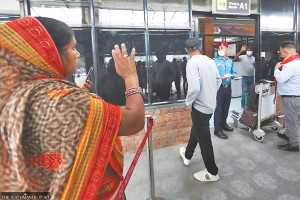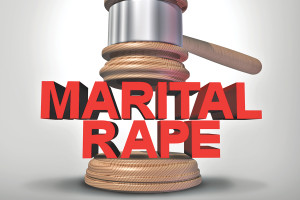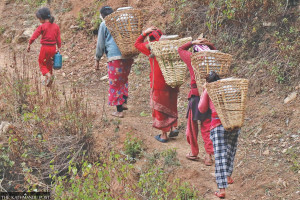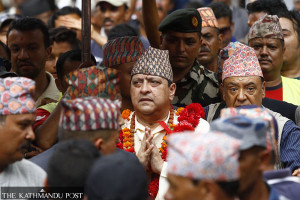 20.12°C Kathmandu
20.12°C KathmanduValley
Immunisation Bill endorsed
The government on Monday endorsed the Immunisation Bill, paving the way for the private sector to run immunisation programmes.
The government on Monday endorsed the Immunisation Bill, paving the way for the private sector to run immunisation programmes.
Private, non-government and community hospitals or health facilities that wish to provide immunisation services now can do so now with the government approval.
While reviewing the bill, lawmakers had argued that public health programmes should be strictly under government jurisdiction, fearing misuse of authority. After discussions with health officials and experts, the review committee had then given the nod to the provision without any changes.
Even on Monday, a parliamentarian had expressed his reservations about the provision.
Dilli Kafle of Nepal Majdoor Kisan Party said given the present status of private health institutes, authorising the private sector to handle vaccines could be a wrong move. “We don’t think the private sector will be able to maintain the strict protocol that needs to be maintained while handling vaccines,” said Kafle.
Officials, however, have said the private sector had been running immunisation programmes with the approval from Department of Drug Administration and Child Health Division of the Ministry of Health and Population and that enforcing the provision through Immunisation Act would
only make them more accountable.
The Act also has an additional provision for government-private sector partnership so that investment can be made to produce vaccines used by the government under the country’s immunisation programme.
Dr Badri Raj Pandey, Chairperson of Nepal Public Health Foundation, said the government needs to apply stringent measures to regulate vaccine protocols during its handling by non-government authorities. “The tendency of making huge profit should be kept in check,” said Dr Pandey. “The move, however, is in line with government’s policy to bring the private sector on board in public health programmes.”
Among other provisions, the Act envisions formation of an Immunisation Fund that officials believe will help in sustainability of the immunisation programme. According to the Act, the government and non-government sectors will contribute to the fund that will be used to procure vaccines during normal and emergency times.
In the aftermath of the April 25 earthquake, fears of measles outbreaks in informal camps had exponentially grown.
Unicef in May had said that before the April 25 earthquake, around one in 10 children in Nepal were not vaccinated against measles.
Vaccination coverage
Vaccines %
BCG 96
DPT1 90
DPT3 90
Polio3 90
MCV 86
HepB3 90
Hib3 90
Newborns protected against tetanus 82
Source: Unicef (2012)










.jpg&w=300&height=200)



